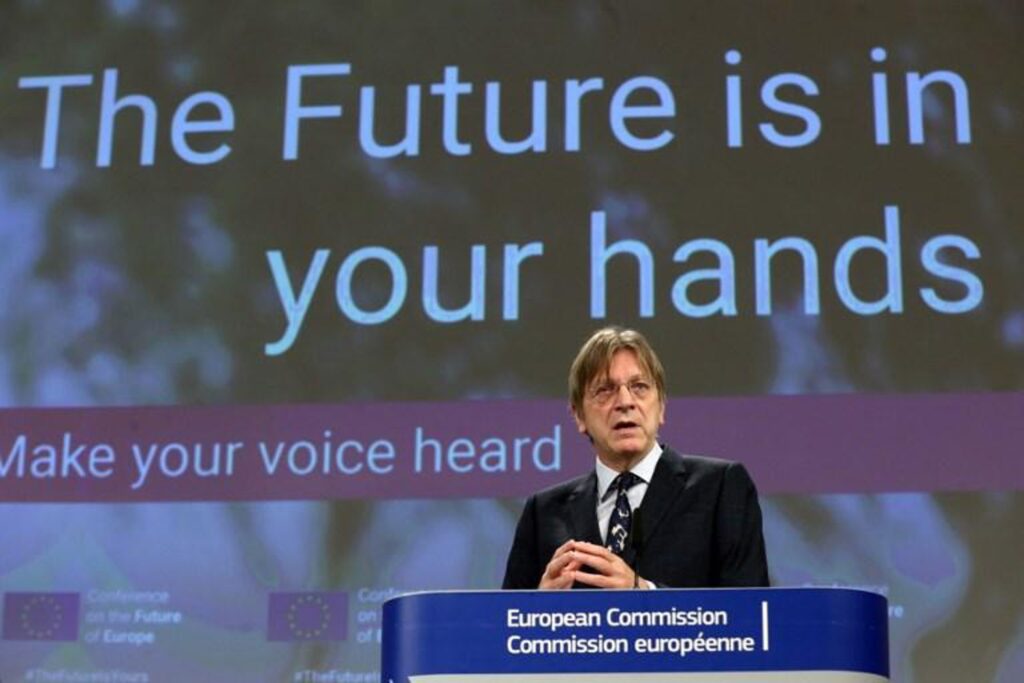The European Parliament was able to gain a majority to pass a proposal to revise the European Treaties on Wednesday for the first time.
One of the proponents was the former Belgian Prime Minister and MEP, Guy Verhofstadt (Renew), who expressed his satisfaction with the result: "The European Parliament proposes radical and ambitious reform of the treaties - ending unanimity and creating a defence union."
The proposal originated from the Conference on the Future of Europe, where European citizens spent a year formulating recommendations.
"This is the first time a report on treaty changes has achieved a majority," said Sven Simon, a co-rapporteur from the conservative European People's Party (EPP - Germany).
The Parliament is awaiting the decision from the European Council, the group of EU heads of state and government, to call a Convention to revise the treaties in their December summit.
MEPs are demanding a more bicameral-type of system and fewer obstructions in the Council due to more majority-qualified decisions and ordinary legislative procedures.
"By inverting the logic; there would no longer be unanimity, save for exceptions like admission and taxation. This is a small revolution, but it’s the Council’s responsibility to say how we’re going to function with 37," Verhofstadt commented, emphasising the need to brace for the EU’s expansion.
Unsurprisingly, Parliament is calling to be given full legislative rights, as well as being able to propose laws, and become a co-legislator role for the long-term budget. The Presidency of the Commission should also be elected by the Parliament and approved by the European Council – a reversal of the current process.
A greater level of citizen participation would be guaranteed through an obligation for the EU to establish participation mechanisms.
The report was approved by 305 votes in favour, 276 against and 29 abstentions. The accompanying resolution was adopted with 291 votes for, 274 against and 44 abstentions.
The report’s authors are aware that not all these proposals will pass with member states and that the Parliament itself remains divided. Consequently, it will be essential to determine which plans are prioritised.
The Spanish Presidency of the Council of the EU confirmed that it will promptly forward this resolution to the European Council.

